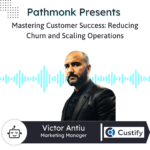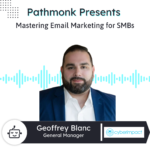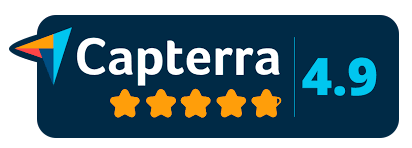CRM SaaS
Introduction
Josh Ho is the CEO of Referral Rock. An engineer by trade where the majority of his expertise and experience is in software product development and SEO lead generation techniques to win demos for the business.
Being an entrepreneur it has led him to develop skills in business development, marketing, client management, and sales. His current business is Referral Rock where they help businesses manage customer referral programs. Where they believe every business has the potential to increase their word of mouth.
Josh shares hands-on insight on how they leverage SEO to grow leads from the website. This episode lets you dive into the detailed nuts and bolts of building up SEO expertise for your business.
See how to grow your business with SEO lead generation techniques…
Pathmonk: How would these folks end up finding ReferralRock? Like what’s a typical user journey?
Josh Ho: We are pretty much primarily an inbound marketing focused team, so we do a lot of SEO. Our thesis is generally if you’re in the market for something referral marketing related, you’ll probably find us, we just want it to be in the conversation. That’s kind of where it started way back and we’ve continued to double down on that. We thought about ideas of doing outbound or conferences or other things like that. With the remote team and just the way we restructured, we just kept doubling down on what was working. We’ve already a lot of content, we do a lot of SEO, that kind of, that’s roughly our playbook and how customers will find this.
Pathmonk: Cool. Can you share more insights, like what you learned on that way? What has helped you have a strong inbound setup for
Josh Ho: Sure. Early on the biggest advice was probably just really staying, close to the bottom of the funnel as much as possible. Looking for the high intent types of things versus, everyone would love to, even a term like referral marketing is broad and you would think it’d be something that would align right. Well with us. But one, it gets a little competitive. Once you get into the shorter and higher. Have we created higher query terms? but what ends up happening is it’s also very generic, right? So you might not get businesses, it’s just someone wondering what referral marketing emails that you get you have. It is a much bigger pie but a lot less focused on what you might provide. Finding terms and finding kind of a, I would say almost like golden little nuggets and the SEO of terms like something like referral, referral marketing strategies for banks or something along with that. Those are, you might only have a hundred queries for that in a month, but they’re super high intent and actually a lot easier to rank for. We use a strategy where we have an idea or a thesis one that we might write an article first and we use a lot of feedback loops. Like we’ll check Google search console to see what the actual number of impressions are versus trusting all of the, hrefs and everyone else out there that gives you traffic numbers cause they’d have good data and they still relatively in the ballpark, but it could be a massive difference for me where that query that has someone says that only has a hundred. I put it on, I start listing it, getting on a page and I can see I’m on page two or on the fringes of getting onto page one and there’s a thousand impressions. There’s a lot more there than any of us really knows. We use a lot of feedback to kind of retarget and we optimize based off of the actual impressions and stuff we see. It takes a lot of upfront work, right, to get all of this content out to then get the traffic in to then optimize for those that are kind of having potential based on your experience. Yeah there’s a lot of steps to it. It’s funny as it turns into that type of marketing where you have to change your mindset instead of what everyone kind of tells you is like publication based marketing in terms of content. You think of, if you think of it more as like your, if content is an asset and your worth, you’re running experiments and you’re free to keep updating them, keep changing them and things like that. Having that like more of a Wikipedia approach to like keeping up these things and treating it like a library versus a publication. It’s definitely a mental shift cause when we bring writers on they’re like, okay, we need to get an article out this week. I’m like, who goes to referralrock.com/blog to like, what is the way to summer from marketing? Not many people, but yeah, if you get in that cycle and that modality, it definitely helps. From those we do some calls to action and other things to drive them to the homepage or drop them to landing pages, which then drive them to a demo or a signup.
Pathmonk: Could you tell me about the role of your website because content being so important – like what, what is role of the website play & conversion rate?
Josh Ho: If it wasn’t for that, yeah, it’s like, because we view it as multiple things. We use multiple WordPress instances on our main domain just with just flat is the main marketing site ReferralRock. com/blog is our blog content. We’ve recently started, you probably heard of like some hubbing cluster topic types of strategies for SEO. We recently did that and that’s under refer rock. com/hub. That again is mostly content as well. All of those pieces all look to basically drive people to landing pages that where we’re getting a little tighter on our copy in terms of what we offer and why you should talk to us, why you should talk to our sales people, what our placings like and then add to more, driving them to that, to the main home page as well. Very very cool envelope. We did types of metrics because since the website is a low key essence for you guys, like what does the metrics that you would care about for the websites that you would really think, okay, this is the ones that we really have to focus on?
(…)












